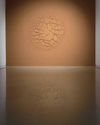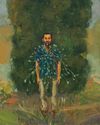
Since the last few years, the national political discourse has centered around the criticism of two crucial figures of modern Indian politics – Mohandas Karamchand Gandhi and Jawaharlal Nehru. While the former is considered as the Father of the Nation, the latter is regarded as the Architect of Modern India. The range of criticism against these figures spans different political persuasions – from the Left and the Right and from Ambedkarite sections. Gandhi’s own display of racism and his contempt for blacks during his stay in South Africa have been invoked recently to question his stature as an icon of peace. Back in India, organizations that have an antagonistic relationship with his political ideology have left no stone unturned to dismiss and discredit his politics of non-violence or ahimsa. This virtue, which according to Gandhi, should be valued by society above all other important tenets, has been condemned as the characteristic feature of a coward who is unable to defend his country.
While Gandhi’s legacy of ahimsa is under threat back home, his role and relevance in our times are being explored by eight artists participating in the Indian pavilion in the current edition of the Venice Biennale. The Indian Pavilion featured works by both contemporary and modern artists like Atul Dodiya, Ashim Purkayastha, Jitish Kallat, Shakuntala Kulkarni, G. R. Iranna, Nandalal Bose, Rummana Hussain and M. F. Husain. The artworks locate Gandhi in the present context and test his political relevance against the high tide of jingoism and hate crimes. Artists have used various mediums and strategies to address this crisis by foregrounding Gandhi’s political ideology.
Bu hikaye Art India dergisinin August 2019 sayısından alınmıştır.
Start your 7-day Magzter GOLD free trial to access thousands of curated premium stories, and 9,000+ magazines and newspapers.
Already a subscriber ? Giriş Yap
Bu hikaye Art India dergisinin August 2019 sayısından alınmıştır.
Start your 7-day Magzter GOLD free trial to access thousands of curated premium stories, and 9,000+ magazines and newspapers.
Already a subscriber? Giriş Yap

Parts, Wholes And The Spaces In Between
Sonal Sundararajan introduces Samira Rathod's free-spirited and rebellious explorations in the world of architecture, furniture and design.

"The Fine Art of Going to the Pictures."
Dr. Banerjee in Dr. Kulkarni's Nursing Home at Chemould Prescott Road brings together 26 paintings featuring a series of dramatic scenes from Hindi and Bengali films. In conversation with Abhay Sardesai, artist Atul Dodiya talks about childhood trips to movie halls, painted figures gripped by tension, and the closeness and remoteness of cinematic images.

"To Finally Have Something of Your Own to Mine."
Dayanita Singh is the recipient of the coveted 2022 Hasselblad Award. Keeping the photograph at the centre, she speaks to Shreevatsa Nevatia about books, book objects, photo novels, exhibitions and museums.

OF DIVINE LOSS
Shaurya Kumar explores the relationship between the subject and object of devotion, finds Aranya.

THE PAST AND ITS SHADOWS
Neha Mitra visits two shows and three artists in Mumbai.

FORCE OF NATURE
Alwar Balasubramaniam dwells on absences and ephemeralities in his new work, states Meera Menezes.

SHAPES OF WATER
Devika Sundar's works delineate the murky, malleable boundaries between the human body and the organic world, says Joshua Muyiwa.

INTIMATIONS OF INTIMACY
Sunil Gupta shares his journey with Gautami Reddy.

THE FRACTURED PROSPECT
Nocturnal landscapes as ruins in the making? Adwait Singh looks at Biraaj Dodiya's scenes of loss.

TEETERING BEYOND OUR GRASP
Meera Menezes traces Mahesh Baliga's journey from Moodabidri to London.